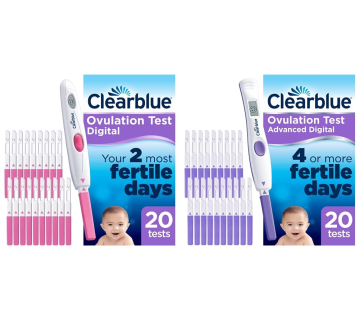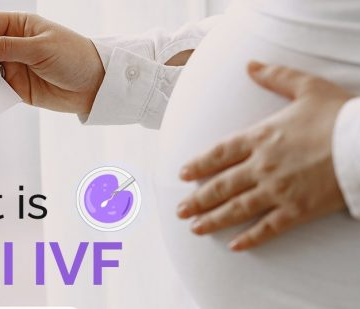
Understanding IVF Needles: What You Need to Know
Embarking on the journey of in vitro fertilization (IVF) is a significant step toward building your family. Alongside hope and excitement, IVF involves various procedures and medications, some of which require the use of needles. If you’re new to IVF or considering it, understanding how needles are used in this process can help ease your concerns and prepare you for what lies ahead.
What Are IVF Needles?
IVF needles are specialized syringes used to administer fertility medications. These medications play a crucial role in stimulating your ovaries to produce multiple eggs, supporting the uterine lining for implantation, and maintaining early pregnancy.
- Types of Needles: The needles used in IVF are typically fine and short, designed for subcutaneous (under the skin) or intramuscular (into the muscle) injections.
- Purpose: They deliver hormones like follicle-stimulating hormone (FSH), luteinizing hormone (LH), progesterone, and estrogen, which are essential for the IVF process.
Dr. Emily Harris, a fertility specialist, explains, “The needles used in IVF are specifically chosen to ensure that medications are delivered effectively and comfortably.”
When Are Needles Used in IVF?
Needles play a vital role at different stages of the IVF process:
- Ovarian Stimulation: To stimulate your ovaries to produce multiple eggs, you’ll receive daily injections of FSH and sometimes LH.
- Trigger Shot: Once your eggs are ready for retrieval, a final injection of human chorionic gonadotropin (hCG) is given to trigger ovulation.
- Progesterone Support: After embryo transfer, progesterone injections support the uterine lining and help maintain the early stages of pregnancy.
Types of Injections: Subcutaneous vs. Intramuscular
Understanding the two main types of injections can help you prepare for your IVF medications:
- Subcutaneous Injections: These are administered just under the skin, usually in the abdomen or thigh. They are less painful and easier to self-administer.
- Intramuscular Injections: Delivered deeper into the muscle, often in the buttocks or thigh. They may be slightly more uncomfortable but are necessary for certain medications.
Dr. Laura Kim, a reproductive endocrinologist, says, “Choosing between subcutaneous and intramuscular injections depends on the medication and how your body responds to it.”
Common IVF Medications Administered via Needles
Several medications are commonly used in IVF that require needle injections:
- Gonadotropins (FSH and LH): Stimulate the ovaries to produce multiple eggs.
- GnRH Agonists/Antagonists: Prevent premature ovulation.
- hCG (Trigger Shot): Triggers ovulation before egg retrieval.
- Progesterone: Supports the uterine lining post-transfer.
Each of these medications has a specific role, and your doctor will guide you on how and when to use them.
Managing and Coping with Injections
Administering injections can be daunting, but there are ways to make the process easier:
- Preparation: Always wash your hands before handling needles and medications. Follow your doctor’s instructions carefully.
- Injection Techniques: Rotate injection sites to reduce soreness. For subcutaneous injections, pinch the skin gently before injecting.
- Pain Management: Some women find it helpful to use a cold pack on the injection site or take over-the-counter pain relievers if recommended by their doctor.
Dr. Michael Lee, a fertility nurse, advises, “Practice makes perfect. The more you get used to giving yourself injections, the easier it becomes.”
Possible Side Effects of IVF Injections
Like any medical treatment, IVF injections can have side effects. Understanding these can help you manage them effectively:
- Local Reactions: Redness, swelling, or pain at the injection site.
- Hormonal Side Effects: Bloating, mood swings, headaches, and fatigue due to hormone fluctuations.
- Ovarian Hyperstimulation Syndrome (OHSS): A rare but serious condition caused by excessive hormone levels, leading to swollen ovaries, abdominal pain, and other symptoms.
Dr. Sarah Mitchell, an obstetrician, notes, “Most side effects are mild and temporary, but it’s important to contact your doctor if you experience severe symptoms.
Common Misconceptions About IVF Needles
There are several myths surrounding the use of needles in IVF. Let’s debunk some of them:
“Needles Are Extremely Painful”
- Reality: While injections can be uncomfortable, most women find them manageable. Using proper techniques and relaxation methods can minimize discomfort.
“More Injections Mean Better Success”
- Reality: The number of injections is tailored to your specific treatment plan. More injections don’t necessarily equate to higher success rates.
“You Need a Nurse for Every Injection”
- Reality: Many injections, especially subcutaneous ones, can be self-administered after proper training from your healthcare provider.
Emotional and Psychological Aspects of Using IVF Needles
IVF treatments can take an emotional toll, and the use of needles adds another layer to your experience.
- Stress and Anxiety: The fear of needles and the overall stress of IVF can lead to anxiety.
- Support Systems: Lean on friends, family, or support groups to share your feelings and experiences.
- Counseling: Speaking with a therapist can help you navigate the emotional challenges of IVF.
Dr. Emily White, a fertility counselor, says, “Emotional support is just as important as physical care during IVF. Don’t hesitate to reach out for help.”
When to Seek Medical Help
While most side effects are mild, certain symptoms require immediate medical attention:
- Severe Pain: Intense abdominal or injection site pain.
- Heavy Bleeding: More than light spotting after embryo transfer.
- Signs of OHSS: Rapid weight gain, severe bloating, difficulty breathing.
- Allergic Reactions: Rash, itching, or difficulty breathing after an injection.
Always keep your doctor’s contact information handy and know when to reach out for help.
Conclusion
IVF needles are a fundamental part of the in vitro fertilization process, delivering essential medications that support your journey to pregnancy. While the idea of injections can be intimidating, understanding their purpose, managing side effects, and knowing how to cope emotionally can make the experience more manageable. Always communicate with your healthcare team, follow their instructions, and seek support when needed. Remember, you’re not alone on this path, and with the right information and support, you can navigate IVF with confidence.
You’re taking a brave step toward building your family. Stay informed, take care of yourself, and lean on your support system as you navigate your IVF journey.
This article is for informational purposes only and does not replace professional medical advice. Always consult with a qualified healthcare provider regarding your health and treatment options.


